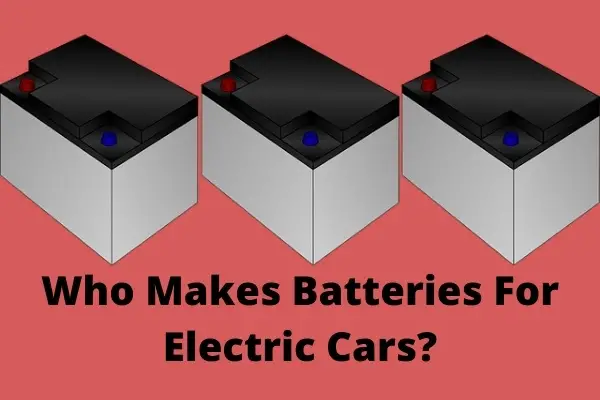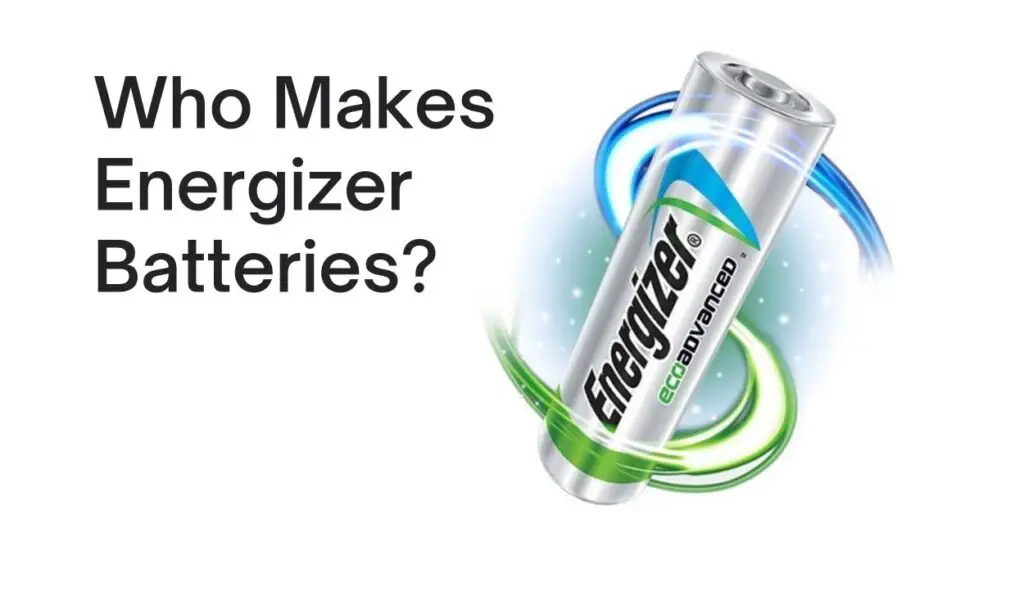Since the invention of the first electric vehicles in the 1830s, EV batteries have gone a long way. Lithium-ion batteries, which were introduced in 1991, power modern electric automobiles. Manufacturers continue to experiment with chemistries, designs, and production techniques. But with their quality production, one query that comes to mind is, who makes ev batteries?
China, Argentina, and Bolivia account for 58 percent of the world’s lithium deposits, yet Australia produces roughly half of the world’s lithium. There are abundant lithium supplies (86 million tons) all across the world.
Well if you are searching for these answers, you have just come to the right place! We are here to introduce you to the best EV technologies, their ins and outs. Stay with us to be the known ones about these!
What Is an EV Battery?
An EV battery is a collection of individual battery cells the size of an AA battery. These cells are clustered into protective frames known as modules, each with its own circuitry, and the modules are clustered together to form a pack.
A Battery Management System and a cooling system control the entire pack, regulating heat and voltage, preventing the battery from depleting too much or too quickly, and managing energy charging and discharging.
EV batteries work by passing lithium ions (charged atoms) via an electrolyte solution, which transports positively charged ions between distinct electrodes known as anodes and cathodes. This process generates an electric current, which is then routed to the EV’s motor.
The materials used to make the electrodes, separators, and electrolytes can vary. Of course, lithium is the most important component, but other elements that are regularly employed include aluminum, charcoal, cobalt, iron, manganese, nickel, oxygen, phosphorus, and silicon.
Concerns about the Supply Chain
For lithium-ion batteries, EVs compete with electronics and energy storage devices, both of which are developing sectors.
According to the International Energy Agency, 145 million EVs might be on the road by 2030. Mineral demand for EV and energy storage batteries is predicted to increase five- to ten-fold by 2030 and ten-to-thirty-fold by 2040.
According to Automotive Manufacturing Solutions’ (AMS) Electric Vehicle Battery Supply Chain Analysis, there is uncertainty over whether supply will match demand across the battery supply chain. AMS, on the other hand, expects that “global capacity for lithium-ion batteries will expand from 475 gigawatt hours (GWh) in 2020 to more than 2,850 GWh by 2030”.
Cobalt and its Alternatives
Cobalt is the most contentious of the minerals used in EV batteries because its primary source, the Democratic Republic of the Congo, has a history of human rights violations. While manufacturers have lowered the percentage of cobalt in lithium-ion batteries from 60% in the first generation to 15-20% now.
Lowering that percentage to zero is part of the US Department of Energy’s National Blueprint for Lithium Batteries, which will be released in June 2021.Replacing cobalt with more nickel, on the other hand, creates its own set of issues, depending on how environmentally benign (or unfavorable) the mining is.
Electric vehicles that are devoid of cobalt and nickel currently exist and have shown to be commercially effective. Environmentalists and indigenous people have also criticized lithium mining for its negative impacts.
How Are Electric Vehicle Batteries Made?
In the fight against climate change, a global shift to electric vehicles is critical.
Come along as the most important component of these cars, the battery, is made from parts from all over the world. Everything begins with metals and minerals. Cobalt is primarily mined in the Democratic Republic of the Congo. Nickel is primarily mined in Indonesia and the Philippines, while lithium is mined in Argentina, Australia, and Chile. The metals and other ingredients are used to make the electrodes of the battery.
Much of this work is being done in China, which is far ahead of the United States in terms of battery manufacturing. In one recent configuration, a Tesla Model Y had 4,416 battery cells, which the company manufactures at its Gigafactories in the United States. The battery cells account for nearly one-third of the vehicle’s cost.
EV Battery Manufacturing
China is the world leader in refining those basic materials for batteries, and three companies—CATL, LG, and Panasonic—based in China, South Korea, and Japan, respectively, control more than two-thirds of battery manufacturing. Three additional companies boost the market share to 87 percent.
However, in the United States, 70 percent of battery cells and 87 percent of battery packs are made domestically rather than imported, thanks in large part to Tesla’s industry domination. It is noted for its vertical integration. For example- Panasonic batteries are manufactured in California.
Traditional automakers have typically relied on outsourced suppliers, but as they ramp up their own EV production, concerns regarding supply chains have grown alongside them. EV manufacturers in Europe and the United States are taking moves to bring battery manufacturing in-house.
Frequently Asked Questions (FAQs):
Which company makes the best automotive batteries?
Energizer Holdings, Inc. ENR is a global leader in the production of batteries and automotive care products. The firm is a major producer of lithium-ion batteries.
Who manufactures lithium ion batteries?
Ener1 Inc. is a manufacturer of lithium-ion batteries for plug-in hybrid vehicles, pure electric vehicles, military applications, and grid storage.
Why are electric cars bad for the environment?
Because “EVs exhibit the potential for significant increases in human toxicity, freshwater ecotoxicity,” the production process of an electric car is more damaging to the environment than that of a non-electric car.
Are fuel cell vehicles superior to electric vehicles?
The ONLY thing that electric cars outperform hydrogen cars in is efficiency, but fuel cells are still more efficient than the most efficient ICE (38 percent by Toyota) developed today.
Why are electric car batteries so expensive?
The cost of the battery is one of the primary reasons why electric cars are more expensive than their gasoline or diesel-powered counterparts.
Conclusion
When talking about the EV batteries for your automobile category, it’s always tough to decide on. But if you are still reading this article, you have probably gotten the best and easiest solution of all time!
If you are still confused about anything, do let us know!
Related Posts:



